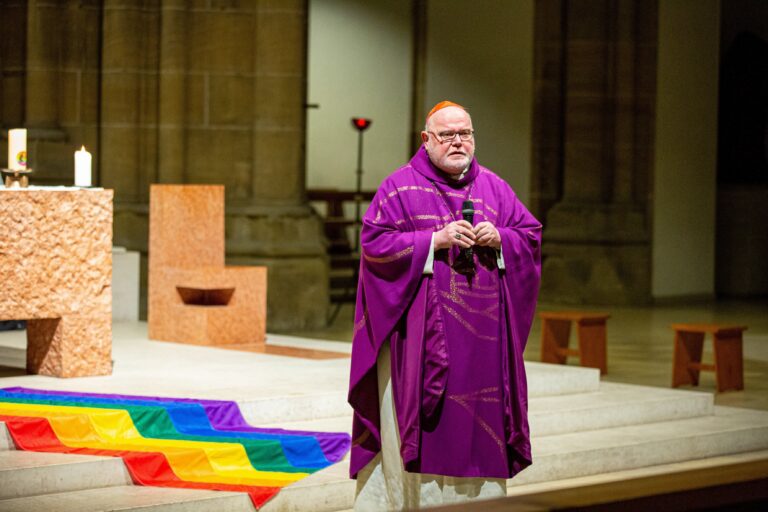Hello again,
It has been striking how much of the attention of the global Church has been on Germany in recent years. 500 years on from the reformation, the arguments being made around the Rhine are again shaking Catholicism.
That was the case again this week, when Cardinal Marx of Munich called for a major rethink on the Church’s teaching on sexuality.
The Cardinal said Catholic teaching on sexuality ‘represents a Catholic trauma’, in part because it was far too often associated with sin and prohibitions.
As someone who has been reporting on the Catholic Church for twenty years, this is not how Cardinals usually talk in public. There has been a seismic shift. Even the location of his remarks (The opening of the exhibition “Damned Lust! Church. Body. Art” at the Freising Diocesan Museum) provoked a double take.
The background, of course, is the German Synodal Way. The separate synodal process that has repeatedly called for revolutionary changes to Church teachings.
Despite concerns from the Vatican, the German Catholic bishops want to stick to their reform course. “The broad majority of bishops stand behind the reform concerns of the Synodal Path and are striving for lasting changes,” the president of the German Bishops’ Conference, Bishop Georg Baetzing said.
It’s worth considering just why Germany has become the epicentre of Catholic reform. One key factor is the astonishing wealth of the German Church. The church tax there means that anyone who is registered as a Catholic automatically gives a small percentage of their earnings to the Church. This brings in magnitudes more funds than the traditional collection plate. As a result the German Church has vast numbers of lay employees. This sheer quantity has created a caste of lay Catholics engaged in Church politics and able to push for reforms in a way that is quite different to elsewhere.
Indeed the energy in England, where priests still tightly control the institutional Church is very different. Groups pushing for reform there feel disheartened. Penelope Middleboe, of Root and Branch Reform, said they have a growing scepticism about the Synod.
“It does feel like the Church might be stuck and can’t make the reforms the laity are asking for. It’s all just too slow, which has always been the way, I mean the Vatican was one of the last countries to ban slavery.”
That piece suggests that the English Church seeks the Synod as an opportunity for change, but not too much. The Anglo pessimism that has sparked It is in stark contrast to German radicalism.
But rather than remain caught between those two poles, Irishman Garry O’Sullivan had an alternative suggestion for the Church in the most recent Synodal Times.
In many countries of Europe, churches, monasteries and seminaries are empty or half-empty. Jesus tells us the same thing he told the exhausted fishermen: Try again, go to the deep. To try again is not to repeat old mistakes.
It takes perseverance and courage to leave the shallows and go to the deep. “Why are you afraid – don’t you have faith?”, Jesus says in all storms and crises. Be not afraid.
These varying perspectives make one thing clear, the future of the Church is still up for grabs. If you want to know where it’s going consider subscribing to The Synodal Times.
God bless and see you next week.
Ian



